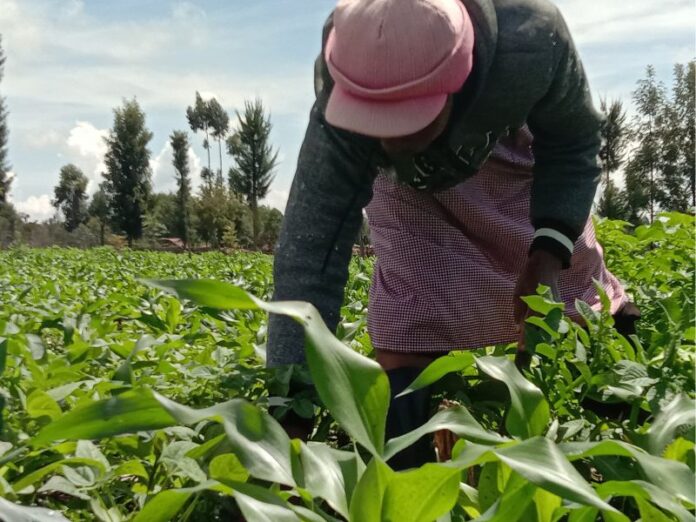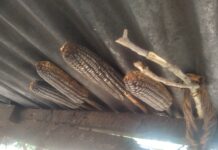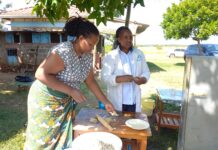By Wesley Langat
Nakuru County, Kenya: It is a cloudy Saturday morning in Kerima village in Njoro, 25 Km from Nakuru city, here lies Kenya’s rich agricultural region. Dark clouds are hanging so low leaving a cool temperature, a sign of an expected heavy rain.
Monica Wamboi, a mother of four is busy weeding maize and beans in her quarter-acre farm located on thee Rift Valley “Although there were prolonged droughts, I had a timely planting because the rainy season is back and I had already bought seeds and fertilizers from the One Acre fund shop” says Wamboi.
Monica, is a member of Shiners Women Group-Kerima and also a small-holder farmer who cultivates maize, beans, vegetables, and potatoes in a half-an acre piece of land.
Since 2019, during every planting season, Wamboi and other members of her group receive financial support, a loan given to small-scale farmers inform of farm inputs such as fertilizers and quality seeds among others from One Acre Fund, an agricultural service provider that supports Africa’s smallholder farmers towards building a resilient community.
“When One Acre Fund came in 2019, they trained us on opportunities for increasing our agricultural productivity, afterwards we started getting loans. “She explained.
The World Bank reaffirmed agriculture as the main driver of economic growth, accounting for 4% of global gross domestic product (GDP) and supporting more than 33 million small-scale farmers in Africa. For small-scale farmers like Monica, agriculture is the main source of livelihood. But in recent years, it has been threatened by climate change, Covid-19, and the rising cost of living making farming a very expensive enterprise.
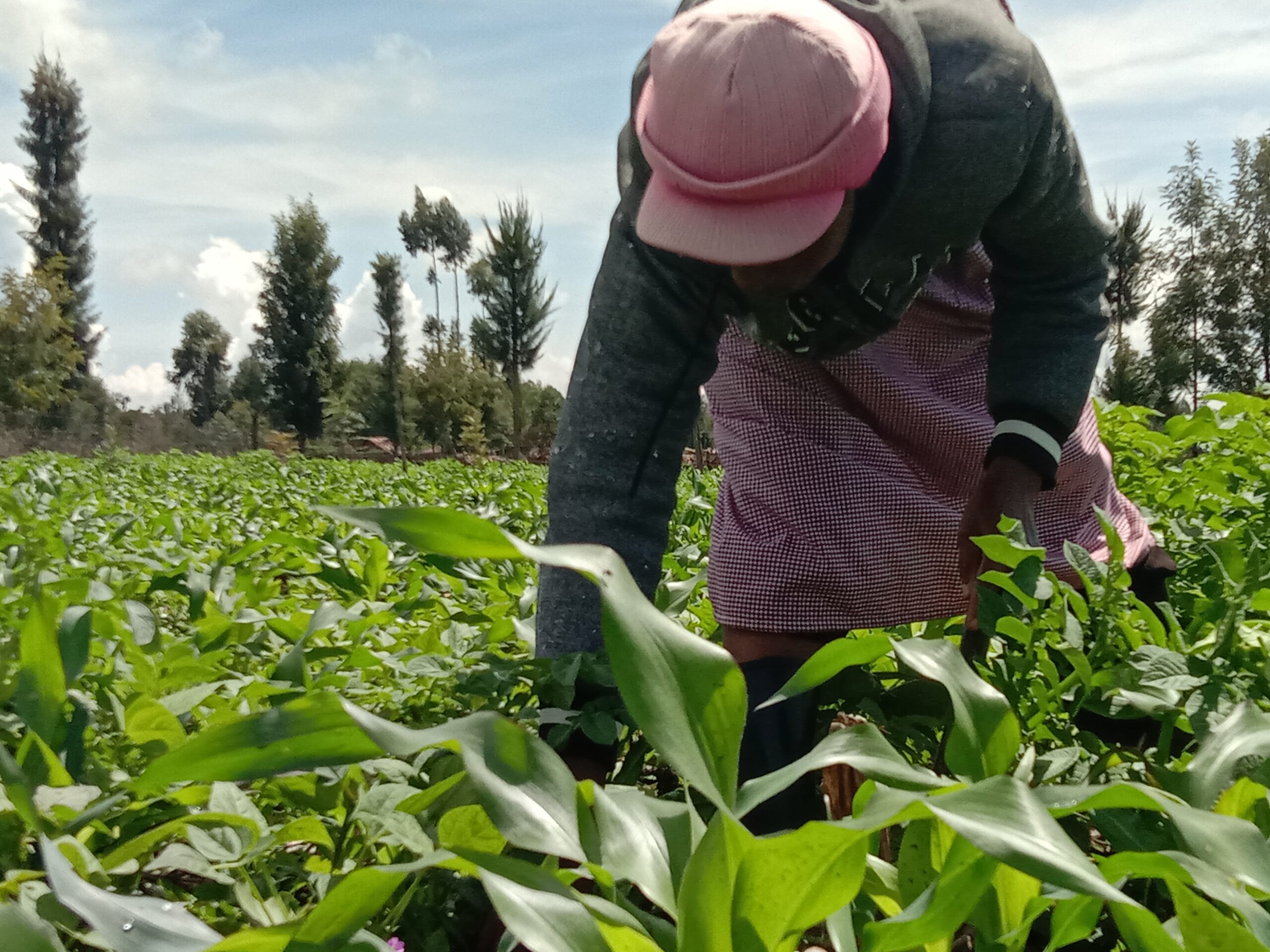
Before she joined the program, Monica says that her farming was unproductive and often ran into losses or missed planting seasons because she didn’t have money to purchase seeds and fertilizers.
“Sometimes you set aside money for cultivating the farm and buying fertilizers, you end up paying school fees or buying food”. She said referring to the overwhelming demands of household needs that are taking the larger share of her household budget hence delayed planting.
According to the Food and Agriculture Organization of the United Nations (FAO), smallholder land size in Sub-Sahara varies from less than one hectare to 10 hectares. As such, in Kenya, small-scale farmers own 0.47 hectares while in Ethiopia, on average, small landholding is 0.9 hectares respectively.
In this context, Abraham Rugo Muriu, the country director for International Budget Partnership, a global nonprofit organization that promotes more responsible, effective, and equitable management of public money, described small-scale farming in Africa particularly Kenya as subsistence-based; owing to the size of land that is own at the household level. Therefore, financing this kind of farming becomes a challenge and can’t qualify for loans from banks.
“Majority of these households with the size of their land and type of production may not qualify for large loans from banks.” He explained.
Mr. Rugo further described this situation as favorable for microfinance facilities due to the nature of their flexible credit programs where farmers get fertilizers among other farm inputs. However, the repayment terms are designed to match farming performance. Once farmers harvest their produce, it is the same micro-finance that provides a market in the process they recover their money and give back the surplus to the farmers.
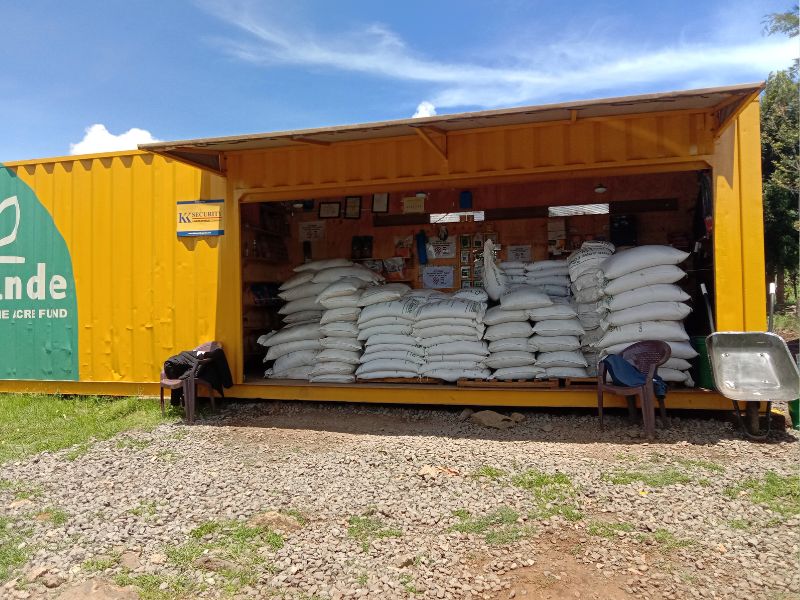
Evidently, agricultural financial credit is strengthening the resilience of small-holder farmers and improving the general livelihoods of the rural communities in Kenya. As part of these services, Tupande by One Acre Fund was launched in May 2022 to enable farmers to get quality farm products and services directly from field agents or at their local duka all year round.
Ms. Karigu P. Ekumbo, communications specialist at Tupande by One Acre Fund says that timely access to vital agricultural services by small-scale farmers is an important component in farming and empowering farmers to produce more food.
“We discovered that lack of access to farm inputs is the main challenge facing smallholder farmers in Kenya,” Said Karigu. To respond to this problem, her organization established Tupande, by One Acre Fund Dukas, a one-stop shop located in various parts of the country where farmers get quality farm supplies such as seeds and fertilizers and wheelbarrows among other farm inputs.
While Selina Chemutai another farmer commented on the efficiency of the Tupande Dukas as she no longer wastes time looking for seeds or fertilizers. “Nowadays, you just place an order and in case the item isn’t available you get a notification once it is available,” said Selina
Michael Wairegi Kimani, a Duka officer who operates Tupande Duka in Njoro applauds the Dukas as it is a form of bringing services closer to farmers. During planting seasons, smallholder farmers get their input on time, especially fertilizers and seeds.
“Like this season we have been busy all day, we could serve over 100 farmers in a day. He paused. “We serve both registered customers and other farmers…Our dukas are open to all farmers” He concluded.
Apart from credit financial services, farmers are given training on good crop husbandry. The training entails how to apply fertilizers, weeding, and pest control. Monica testified that the training is making an impact on her farming. Ever since she started farming, she hasn’t been able to remain with surplus produce.
As microfinance revolutionized substance based farming, Mr.Rigu opined that this financial program should pay for the entire crop production from tilling the land to harvesting. There is a need for training farmers in financial management. He further recommends that government regulation should be involved.
In recent years, smallholder farming has been at the top of the international discussion. In an effort to improve agriculture in developing countries such as Kenya which were previously affected by Covid-19 and climate change, World Bank awarded Kenya $250 credit last year targeting 500,000 small-scale farmers in 26 counties to support them under the National Agricultural Value Chain Development Project (NAVCDP) and Kenya Climate Smart Agriculture Project.
This publication was produced with the financial support of the European Union. Its contents are the sole responsibility of Wesley Langat and do not necessarily reflect the views of the European Union.

